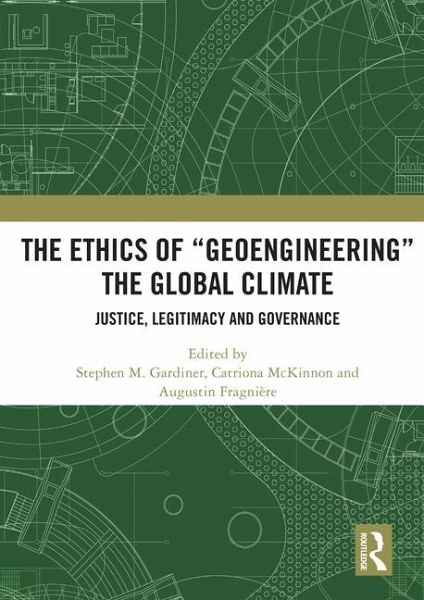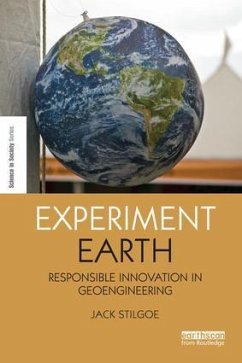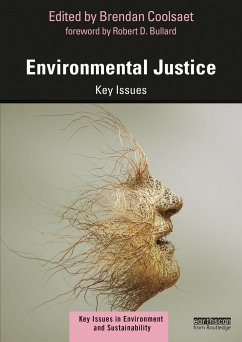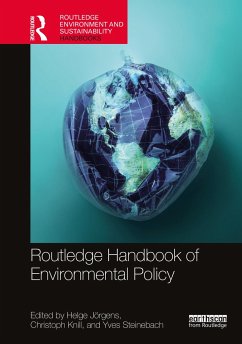
The Ethics of "Geoengineering" the Global Climate
Justice, Legitimacy and Governance
Herausgegeben: Gardiner, Stephen M.; McKinnon, Catriona; Fragnière, Augustin
Versandkostenfrei!
Versandfertig in 6-10 Tagen
45,99 €
inkl. MwSt.
Weitere Ausgaben:

PAYBACK Punkte
23 °P sammeln!
In the face of limited time and escalating impacts, some scientists and politicians are talking about attempting "grand technological interventions" into the Earth's basic physical and biological systems ("geoengineering") to combat global warming. Early ideas include spraying particles into the stratosphere to block some incoming sunlight, or "enhancing" natural biological systems to withdraw carbon dioxide from the atmosphere at a higher rate. Such technologies are highly speculative and scientific development of them has barely begun.Nevertheless, it is widely recognized that geoengineering...
In the face of limited time and escalating impacts, some scientists and politicians are talking about attempting "grand technological interventions" into the Earth's basic physical and biological systems ("geoengineering") to combat global warming. Early ideas include spraying particles into the stratosphere to block some incoming sunlight, or "enhancing" natural biological systems to withdraw carbon dioxide from the atmosphere at a higher rate. Such technologies are highly speculative and scientific development of them has barely begun.
Nevertheless, it is widely recognized that geoengineering raises critical questions about who will control planetary interventions, and what responsibilities they will have. Central to these questions are issues of justice and political legitimacy. For instance, while some claim that climate risks are so severe that geoengineering must be attempted, others insist that the current global order is so unjust that interventions are highly likely to be illegitimate and exacerbate injustice. Such concerns are rarely discussed in the policy arena in any depth, or with academic rigor. Hence, this book gathers contributions from leading voices and rising stars in political philosophy to respond. It is essential reading for anyone puzzled about how geoengineering might promote or thwart the ends of justice in a dramatically changing world.
The chapters in this book were originally published in the journals: Ethics, Policy & the Environment and Critical Review of International Social and Political Philosophy.
Nevertheless, it is widely recognized that geoengineering raises critical questions about who will control planetary interventions, and what responsibilities they will have. Central to these questions are issues of justice and political legitimacy. For instance, while some claim that climate risks are so severe that geoengineering must be attempted, others insist that the current global order is so unjust that interventions are highly likely to be illegitimate and exacerbate injustice. Such concerns are rarely discussed in the policy arena in any depth, or with academic rigor. Hence, this book gathers contributions from leading voices and rising stars in political philosophy to respond. It is essential reading for anyone puzzled about how geoengineering might promote or thwart the ends of justice in a dramatically changing world.
The chapters in this book were originally published in the journals: Ethics, Policy & the Environment and Critical Review of International Social and Political Philosophy.














